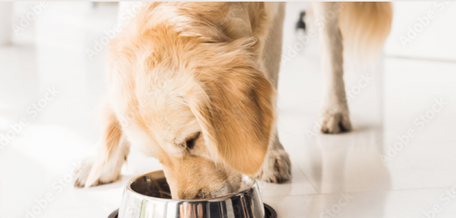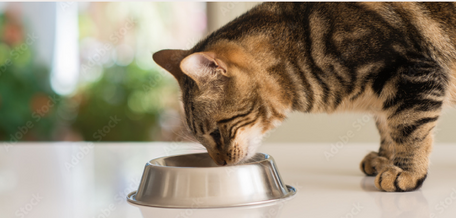Cats are not just pets; they’re carnivorous little hunters who depend on animal-based proteins to thrive. Unlike humans, cats can’t rely on plant proteins or grains for their nutritional needs. They’re obligate carnivores, which means their bodies are built to digest and absorb nutrients from meat. So, when it comes to picking the best cat food, high-quality protein is king.
This article will help you understand what makes cat food stand out, why rabbit cat food is gaining popularity, and how to explore novel proteins to keep your feline happy, healthy, and purring with delight.
Key Takeaways
- Cats need animal proteins as the primary ingredient in their diet for optimal health.
- Novel proteins like rabbit and venison are excellent for cats with allergies or food sensitivities.
- Transparency in labeling is critical; always check the ingredient list and guaranteed analysis.
- Gradual transitions to new proteins help prevent digestive upset.
- Consulting with your vet can ensure the best dietary choices for your cat’s specific needs.
Defining the Best Cat Food Criteria

Choosing the best cat food can be overwhelming with so many options available. Here are the key criteria that separate the good from the great:
1. Ingredient Transparency: Why It Matters
Would you eat something without knowing what’s in it? Your cat shouldn’t have to either. High-quality cat food brands are upfront about their ingredient sources. Avoid vague terms like "meat meal" or "animal by-products" and instead, look for specific proteins like “chicken” or “rabbit.”
Pro Tip: If the label reads like a chemistry experiment, it’s probably not the best choice for your cat.
2. High Animal Protein Content
Animal protein should always be the first ingredient listed. Cats need meat to get essential nutrients like taurine and arachidonic acid, which they can’t synthesize themselves.
Why It’s Important: Protein is the fuel for your cat’s lean muscles, strong bones, and boundless energy. Look for foods with 30% or more protein content in the guaranteed analysis.
3. Grain-Free vs. Grain-Inclusive
The grain-free trend has its merits, especially for cats with sensitivities. However, not all grains are bad. Brown rice or oats in small amounts can add fiber and aid digestion for cats without grain allergies.
When to Choose Grain-Free: If your cat has a sensitive stomach, itchy skin, or a tendency to gain weight.
Rabbit Cat Food: A Game-Changer in Feline Nutrition
If you’re looking for something new to spice up your cat’s mealtime, rabbit cat food might just be the answer.
1. Why Rabbit?
Rabbit is lean, rich in protein, and incredibly easy for cats to digest. For cats with allergies to chicken, beef, or fish, rabbit provides a novel, hypoallergenic protein source.
Nutritional Perks:
- High in essential amino acids for muscle maintenance.
- Low in fat, making it great for weight management.
- Ideal for cats with food sensitivities or digestive issues.
2. Flavor and Texture Appeal
Cats are known to be picky eaters, but rabbit’s rich flavor and tender texture are a hit with even the fussiest felines. It’s a win-win—your cat loves the taste, and you love that it’s healthy.
3. How Rabbit Stacks Up Against Common Proteins
Compared to chicken or beef, rabbit is lower in fat and calories, making it a better option for overweight or senior cats. Unlike fish, it doesn’t carry the risk of heavy metal contamination.
Exploring Novel Feline Proteins

For cats that crave variety or have food sensitivities, novel proteins like rabbit, venison, or quail can make a big difference.
1. Alternatives to Common Proteins
Rotating proteins not only prevents flavor fatigue but also reduces the risk of developing allergies to a specific protein. Venison, duck, and quail are excellent choices to mix things up.
2. Managing Food Sensitivities
If your cat has recurring skin issues, digestive troubles, or general lethargy, they might have a food allergy. Switching to novel proteins like rabbit or venison can help alleviate these symptoms while providing balanced nutrition.
Tips for Choosing the Best Cat Food
1. Master the Art of Reading Labels
Look for named protein sources like “rabbit” or “venison” as the first ingredient. Check the guaranteed analysis for protein content and avoid foods with excessive fillers or artificial additives.
Quick Tip: AAFCO statements on the packaging confirm the food meets nutritional standards.
2. Consult with Your Vet
Your vet can help you tailor your cat’s diet based on their age, weight, activity level, and health history. They may even recommend transitioning to a novel protein like rabbit cat food if allergies are suspected.
3. Transition Slowly
Cats have sensitive stomachs, so switch to a new food gradually. Start with a mix of 25% new food and 75% old food, increasing the new food proportion over 7-10 days.
Conclusion: Empowering Optimal Health
When it comes to your cat’s health, quality food is non-negotiable. Opting for the best cat food, including rabbit cat food or other novel proteins, ensures your feline companion gets the nutrients they need to thrive. Rabbit’s high digestibility, lean protein content, and hypoallergenic properties make it a standout choice.
Investing in premium cat food tailored to your cat’s needs isn’t just about nutrition—it’s about giving them a longer, healthier, and happier life. Ready to elevate your cat’s mealtime? Explore the high-quality options available at BJ’s Raw Pet Food and give your furry friend the gift of optimal health.
FAQs
-
Why is rabbit considered a novel protein for cats?
Rabbit is a less common protein in cat food, making it ideal for cats with allergies or sensitivities to chicken, beef, or fish. -
How can I tell if my cat needs grain-free food?
If your cat has digestive issues, itchy skin, or struggles with weight gain, grain-free food might be beneficial. Consult your vet for guidance. -
Can I feed my cat multiple protein sources?
Yes! Rotating proteins like rabbit, venison, or duck can prevent allergies and keep your cat’s diet interesting. -
What should I look for on cat food labels?
Focus on named protein sources as the first ingredient, a high percentage of animal protein, and minimal fillers or artificial additives. -
Is rabbit cat food suitable for all cats?
Rabbit is an excellent option for most cats, especially those with sensitivities or needing a lean protein. Always transition slowly to avoid digestive upset.
For more tips and premium-quality cat food options, visit BJ’s Raw Pet Food today!




















